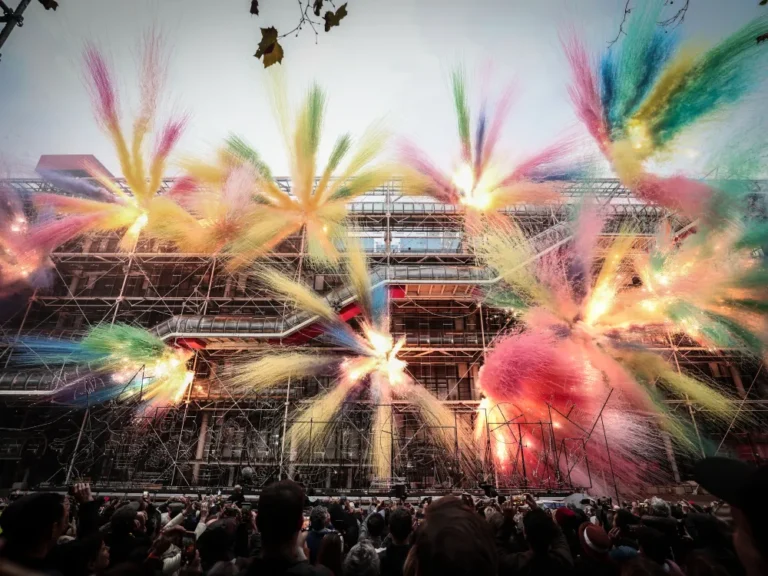As Paris turned its gaze toward Art Basel Paris, the façade of the Centre Pompidou blazed to life one final time before closing for renovation. On October 22nd, Chinese artist Cai Guo-Qiang presented The Last Carnival, a pyrotechnic artwork that transformed the museum’s iconic architecture into a living canvas — a luminous farewell to one of Europe’s most important modern art institutions.
The concept behind ‘The Last Carnival’
The Last Carnival was not merely a pyrotechnic show; it was a Cai Guo-Qiang artwork that celebrated creation and impermanence. Through bursts of gunpowder and colored smoke, the façade became a dynamic tribute to the Pompidou’s vast collection and its legacy as a hub of modern and contemporary thought.
The performance’s three acts — The Banquet, The Dawn of AI, and The Last Carnival — reflected on the museum’s past, present, and future, while acknowledging the growing interplay between human and non-human creativity.
A monumental farewell at Art Basel Paris
Timed with Art Basel Paris, the performance unfolded as both spectacle and reflection — a twenty-minute display conceived in three poetic acts. Cai Guo-Qiang, renowned globally for his artworks that merge painting, performance, and explosion, designed the event as a symbolic gesture —a conversation between art, technology, and humanity.
Working alongside his personal AI model, cAI™, the artist choreographed daytime fireworks that painted the sky in plumes of color and light. Curator Jérôme Neutres described the event as “a living mural — one that speaks of endings, transformations, and the eternal dialogue between art and innovation.”
A final glimpse before transformation
As the last sparks faded from the Pompidou’s surface, the crowd gathered in silent awe — aware they had witnessed a turning point in the institution’s history. The Last Carnival marked not only the closure of a cultural landmark but also the beginning of its renewal.
The Centre Pompidou will reopen after renovation, but Cai Guo-Qiang’s dazzling farewell ensures that its final night will be remembered as one of Paris’s most poetic artistic moments.

